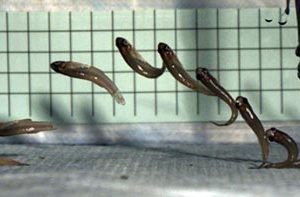wake forest university
Non-alcoholic energy drinks may pose ‘high’ health risks
COLLEGE PARK, Md. — Highly-caffeinated energy drinks — even those containing no alcohol — may pose a significant threat to individuals and public health, say researchers at the University of Maryland School of Public Health and Wake Fo…
Peptide delivers 1-2 punch to breast cancer in pre-clinical study
WINSTON-SALEM, N.C. — Researchers at Wake Forest University Baptist Medical Center (WFUBMC) have discovered what may become a new weapon in the fight against breast cancer. For the first time, a peptide found in blood and tissue has been shown to i…
What to do if you are bitten by a snake
Rosemont, Ill. — Should you be the victim of a snakebite, the best thing you can do is get to a hospital as quickly as possible, according to a new review article from the Journal of the American Academy of Orthopaedic Surgeons (JAAOS). Current me…
Arsenic early in treatment improves survival for leukemia patients
WINSTON-SALEM, N.C. — Thursday, Nov. 11, 2010 — Arsenic, a toxic compound with a reputation as a good tool for committing homicide, has a significant positive effect on the survival of patients with acute promyelocytic leukemia (APL), when admin…
Daily dose of beet juice promotes brain health in older adults
Winston-Salem, N.C. — Researchers for the first time have shown that drinking beet juice can increase blood flow to the brain in older adults — a finding that could hold great potential for combating the progression of dementia.
The research f…
Possible alternate therapy for adults with poorly controlled asthma
A drug commonly used for the treatment of chronic obstructive pulmonary disease (COPD) successfully treats adults whose asthma is not well-controlled on low doses of inhaled corticosteroids, reported researchers supported by the National Heart, Lung…
Scientists Develop Colony of Mice That Fight Off Virulent Cancer
Scientists at the Comprehensive Cancer Center of Wake Forest University have developed a colony of mice that successfully fight off virulent transplanted cancers. “The mice are healthy, cancer-free and have a normal life span,” the 10-member team reported in the Proceedings of the National Academy of Sciences online edition to be published the week of April 28. The transplantation of the cancer cells in these special mice provokes a massive infiltration of white blood cells that destroy the cancer, said Zheng Cui, M.D., Ph.D., associate professor of pathology at Wake Forest University Baptist Medical Center and the lead scientist.
Timing of hormone replacement therapy could be key to success
The timing of treatment may be a key factor in whether hormone replacement therapy (HRT) can slow heart vessel disease, report researchers from Wake Forest University Baptist Medical Center and Tufts-New England Medical Center in the winter issue of Menopausal Medicine.


